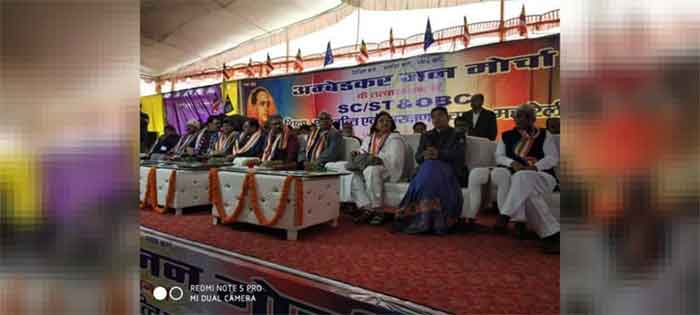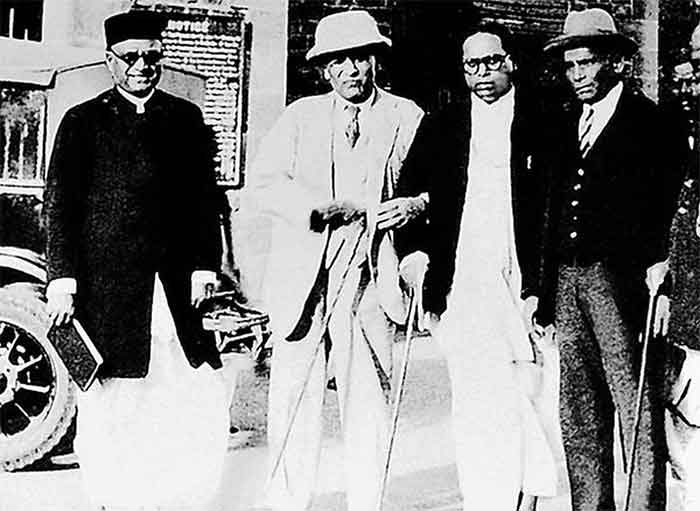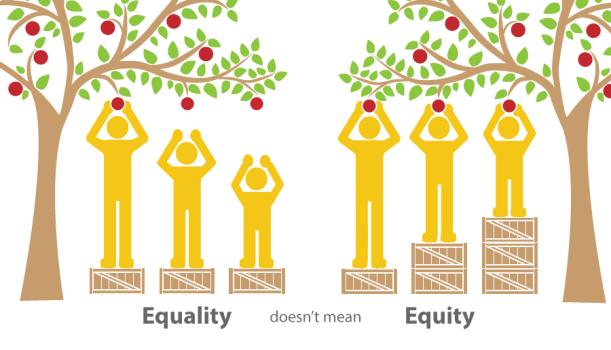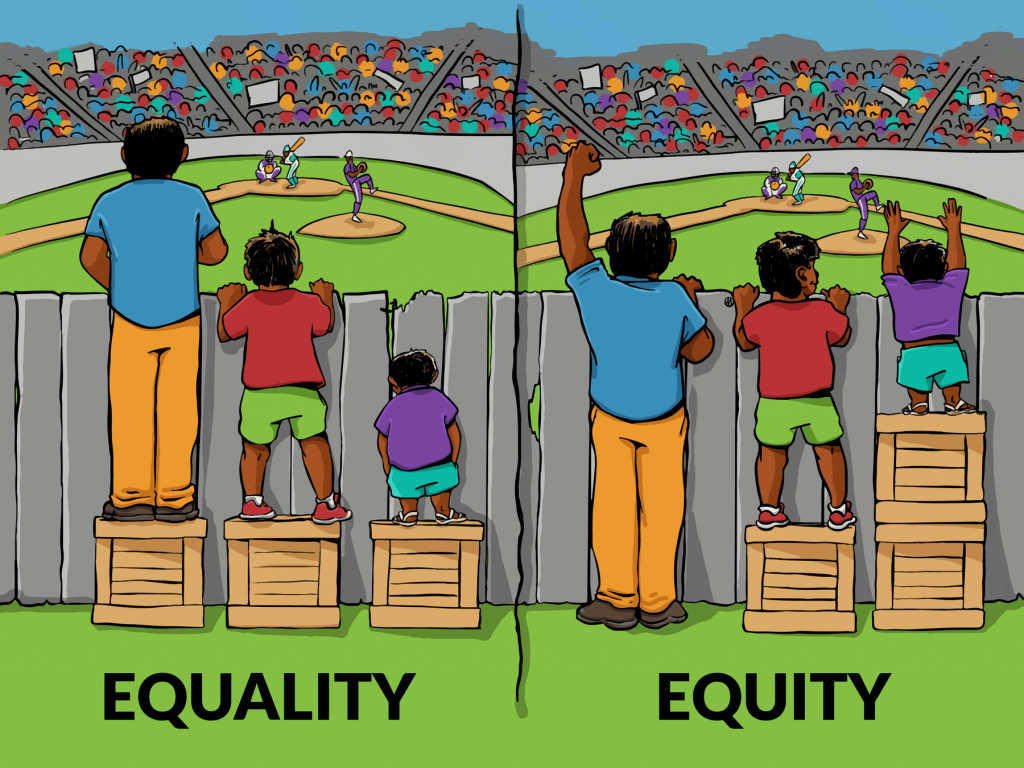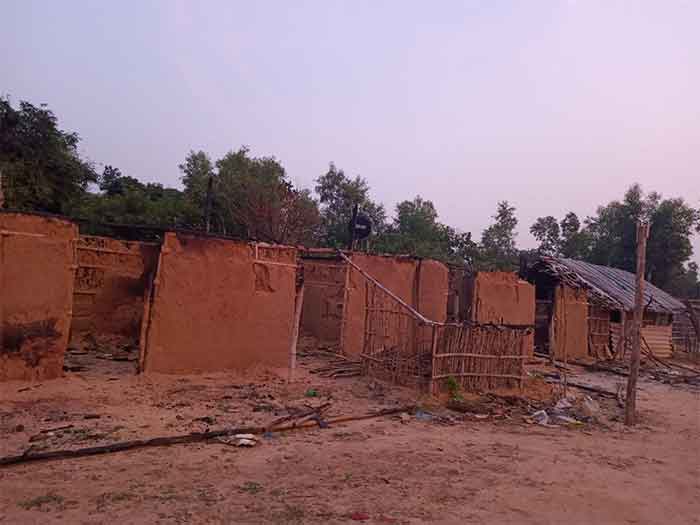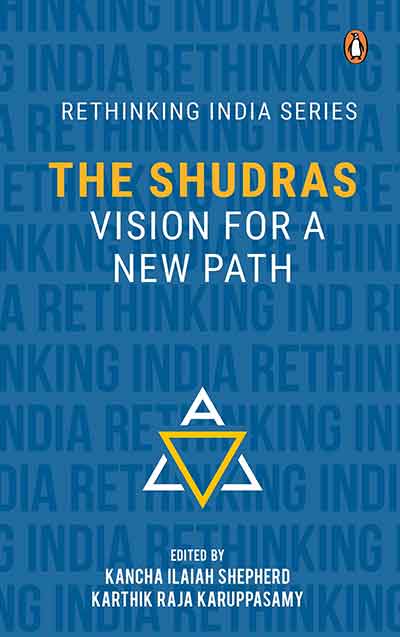
When we were finalizing the title of my latest book The Shudras–Vision for a New Path edited along with Karthik Raja Karuppusamy for Penguin, there was a serious view that the concept “Shudra” must be avoided as it is not acceptable now. The secular intellectuals in post- colonial India completely avoided caste/varna categories in teaching and writing as if they never existed in India. In post Mandal era OBC (the Other Backward Class) and Dalit categories were deployed by concerned social forces on the civil societal discourse but the secular intellectuals deployed a manipulative Gramscian category subaltern, which made no sense to the subject people.
One argument was that the book’s title must be “OBC” as the Shudra category is not being used in media and ecademic normative pedagogic discourses, as paralel to Dalit. The concept Dalit has become known globally putting together all former untouchable castes into one national and global coceptual category.
The unreserved Shudras like Jats, Marathas, Gujjars, Patels (Patidars) were also of the view in the nineties that they should project themselves as Ksatriya not as Shudra. Till the BJP came to power in 2014, with a strong theoretical foundation of promoting ancient sanskrit text based parampara and varna dharma ideology into the pedagogy the paradigm completely shifted. In the RSS/BJP sanskritic discourse Shudras/OBC would not be visible at all. The whole ancient Sanskrit literature talks about Ksatriya kings and Brahmins saints. The Shudra producers who built the Indian economy from the days of Harappan city civilization will have no place in the national discourse. They may just allow some discourse on Dalits but Shudra food producers would have no reference. They want to drop the word Shudra from the Indian diction.
The food producing Shudras did not realise that their socio-spiritual status as fixed in the four varnas–Shudra, Bania, Ksatriya and Brahmin- is not equal to other three social forces even now. They operate as unequals as varna/castes in RSS/BJP controlled structures also–spiritual, social and cultural.
Some agrarian communities that are in protest against the farm laws had not realised the need for reservation in Mandal agitation times. During the Mandal times they did not want to be in the reservation system also because they thought it was below their status as they have feudal assets in some pockets.
Though the OBC category emerged as constituitonal category with a definition of socially and economically backward social force even Banias, who are the vedic Vaishyas, managed OBC certificates and some Muslims, who are a lower caste converts, but still live around occupations that Indian Muslim feudals and elite do not respect also got OBC certificates. But they are not ‘Shudra’ in the sense that we are using now.
Like the name of the religion ‘Hindu’ is an inverted Alberunian (thirteenth century) concept used for Indus Indians with a sense of barbarian, the concept Shudra needs to be inverted from Manuvian sense of slave to food producing nationalist. Thanks to English language it teaches the exploited forces to invert concepts like Black, Dalit and Shudra, at least now.
After the RSS/BJP came to power by setting aside the secular social civil society and state discourse and deploying Hindu Society and Hindu Rastra, naturally the idea of Shudra has to come back with full force. It is a social block of 52 per cent Indian population. If the Shudras do not fight for spiritual, social and economic equality in a fully grown capitalist gloablized India they will be be pushed back to classical slavery.
The category of OBC cannot fight an ideological battle. Nor does the battle can be won by the agrarian food producing Shudras and Dalits with Shashi Tharoor kind of ‘I am a good Hindu and you are a Communal Hindu’ discourse. RSS/BJP can simply ignore that or treat it as their own ally with a different language. The Shudra farmers’ fight has exposed that RSS/BJP’s anti-Shudra/Dalit geneology.
Immediately after RSS/BJP came to power in UP a strong caste sentimental Kshatriya Yogi Adityanath became the Chief Minister and he performed a Shudhikaran in the Chief Minister’s official house. This has shown what is the status of Jats, Yadavs and Jatavs in that state, whose members from Chaudary Charan Singh, Mualayam Singh, Mayawati and Akhilesh Yadav as Chief Ministers lived there. The RSS did not condemn such shudhikaran. Its silence is its approval. In Rajasthan only Vasundara Raje, a strong Rajavamshi Kshatriya woman leader is their Chief Minister repeatedly. In Haryana the Jats were set aside by Manohar Lal Kattar, a Khatri,. He was made the Chief Minister with a determination. In Maharatra Devendra Fadnavis, a Brahmin, was made the Chief Minister as against Shudra/OBC assertion . All these Dwija leaders coming to power is part of promotion of varnadharma parampara of the RSS/BJP at the cost of other Shudra/Dalit majority communities.
When the classical Shudra society was divided into unreserved (general) and reserved categories with a Governmental intervention the upper Shudras were with Dwija anti-reservationists. Now the situation has changed. For example the masses that are protesting against the farm laws include, Jats, Gujjars (of Uttar Pradesh, Haryana, Rajstan) do not come under the central Government OBC list. Most OBC communities that operate in agrarian sector from Yadavs, Kurmis downward are agrarian and artisanal in their day today functioning.
Host of artisan communities that contribute to agrarian production like carpenters, pot makers, iron smiths, fishing folks, fruit gatherers and also survivors of pure agrarian labour, who do not get counted in the Scheduled Castes are also Shudras. Only present Dalits are called Avarnas. But the Government OBC list is more jumbled.
Indian intellectual discourse must engage with all ancient categories at a time when the present ruling dispensation is bringing back the classical ideas as part of its cultural nationalism package, setting aside the Nehruvian secular package. The discourse around the Shudra productivity and nation building must find its place in all discourses, pedagogic and public conversations.
Kancha Ilaiah Shepherd co-edited The Shudras–Vision for New Path, along with Karthik Raja Karuppusamy. The book is number one bestseller of Amazon
GET COUNTERCURRENTS DAILY NEWSLETTER STRAIGHT TO YOUR INBOX

